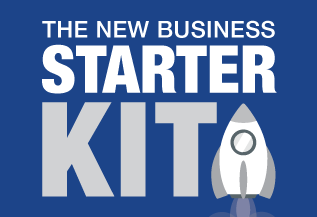Accounting for Psychologists Newsletter #13
Happy New Year!
I’d like to take this opportunity on behalf of myself and the rest of the Accountant for Psychologists Team here at Sheridans to thank you for your support throughout the year. It’s a massive compliment when you tell your family, friends and colleagues about Accountant for Psychologists and we so appreciate it.
I’ve got a few things in the pipeline for the new year. The Team and I have started to put together a book about how to set up as a self-employed psychologist. It’s early stages yet, but we hope to have that ready before Christmas. We’re also planning to make an Accountant for Psychologists resource hub on the web sometime before the next Accountants’ New Year. If you have suggestions about other things psychologists might find useful, be sure to let me know.
As a New Year gift, I’m including links to some really useful spreadsheets.
- This BAS/GST Spreadsheet will help to keep track of your income, expenses and profit and to prepare your BAS statement. BAS Statements Worksheets for Sole Trader
- The Sheridans Home Budget Template will help you keep track of your income and expenses in your personal finances. Sheridans Home Budget Template
I’m very excited about this Accountants’ New Year. It’s not just because of all the End of Financial Year Sales and lodging of tax returns (which, by the way I really enjoy). It’s because next week I’m heading off to Ireland with my family to watch my daughter compete for Australia in the World Archery Youth Championships. To say I’m a proud Dad is a bit of an understatement.
I’ll have my laptop with me while I’m away, and the extremely capable Accountant for Psychologists Team will be holding the fort in Adelaide, so we’ll still be able to answer any questions you may have about your tax, your finances and your business. And if you have any questions about Youth Archery, I’d be happy to answer them too.
In this month’s newsletter
- Important dates for tax
- Dealing with the cost of living
- Employing a staff member – Things to consider
- Making a Privacy Policy for your Psychology Business
Important dates for Tax
| 21 July |
Lodge and pay June 2023 monthly business activity statement. |
| 21 July |
Lodge and pay quarter 4, 2022–23 PAYG instalment activity statement for head companies of consolidated groups. |
| 28 July |
Make super guarantee contributions for quarter 4, 2022–23 to funds by this date. |
| 21 August |
Lodge and pay July 2023 monthly business activity statement. |
| 25 August |
Lodge and pay quarter 4, 2022–23 activity statement if you lodge electronically. |
Dealing with the higher cost of living
Unfortunately, there’s no good news when it comes to the rising cost of living. In fact with electricity prices set to rise this financial year things are beginning to bite.
Here are three suggestions for saving money:
- Refinancing – talk to Sarah, Sheridan’s principal mortgage broker, or me, about refinancing your home loan. We’ll look at your loan and see if we can find a better deal for you with a different lender.
- Live off one income – If you have a life-partner who is also employed, you may want to discuss the idea of living off one person’s income and saving the other. This is a particularly good strategy when saving for a home deposit.
- Create a budget – Getting an accurate picture of where your money goes can really help to pinpoint areas where you could save money. You might find that you’re doing a bit too much eating out or that it’s time to review your health insurance. When you set up a budget these areas come to light. To help you with this, here's the Sheridans Home Budget Template for you as a bonus Happy New Year gift.
Employing a staff member
Employing your first staff member, is a big deal. Here’s a brief outline of things to take into consideration:
Job Description: Clearly define the duties and responsibilities of the position, and the qualifications and experience required for the role.
Legal Requirements: Familiarize yourself with the legal requirements for hiring employees in a health organisation. Your employees will be under the Health Professionals Support Services Award 2010. You’ll also need to comply with the Fair Work Act.
Payroll: You’ll need to set up a system for paying your employees on time and accurately, and for keeping accurate records of their hours and pay. You’ll need software that complies with the ATO's requirements.
Tax and Superannuation: Understand your obligations as an employer for tax and superannuation contributions. You’ll need to organise PAYG tax for your employees and contribute to their superannuation funds.
Insurance: Consider the type of insurance you will need to protect your business and your employees, such as workers' compensation and liability insurance.
Employee Handbook: Create an employee handbook outlining your company's policies and procedures, including things like code of conduct, dress code, and health and safety.
Onboarding: Develop a comprehensive onboarding process to ensure that your new employee is properly trained and acclimatized to their new role and environment.
Communication: Create a system for regular communication with your new employee to ensure that they feel supported and valued, and that you are aware of any issues that may arise.
Employee retention: Develop strategies for employee retention, such as providing opportunities for professional development and creating a positive work culture.
It's important to consider these factors before hiring your first employee to ensure that you are fully prepared for the legal and financial responsibilities that come with being an employer.
The Accountant for Psychologists Team and I would be happy to talk through the financials of employing staff. We can help you look at the numbers to decide whether it’s worthwhile employing someone and help you to set up the payroll and bookkeeping and to understand your tax and super obligations.
Privacy Policy
A Privacy Policy is a statement that declares your practice’s policy on collecting, storing, and releasing information, within the practice and online.
The Privacy Policy cover details about the types of personal information collected, how it will be stored and used, whether it will be shared and with whom, and how it will be protected. It also informs clients about their rights, such as accessing their personal information, requesting their personal information be deleted, and gives details on how to lodge a complaint. This is detailed in the Australian Privacy Act (1988) and the Australian Privacy Principles.
Under the Privacy Act, all medical health service providers are required to have a privacy policy. In addition, if your website collects any personal information, such as names or phone numbers, it is essential to have a Privacy Policy for your website.
An employee of an organisation would be covered by the organisation’s privacy policy.
However, psychologists working under contract may be considered as separate entities under the Privacy Act and should ensure that they are covered by a privacy policy. It may simply be a case of coming under the privacy policy of the practice that you work with. However, this is such an important issue it may be prudent to set up your own. This is especially important if you work at different practices or have your own staff who have access to client information like your receptionist, bookkeeper, and me – your accountant.
If you need to set up your own privacy policy, AAPI has a template available made specifically for psychologists which you can fill in
with your own details. A generic business template is also available from the Business Victoria website https://business.vic.gov.au/tools-and-templates/privacy-policy-template. The
College of General Practitioners has a very thorough template which you can use Privacy
policy template for general practice
While it’s not a legal requirement to have a lawyer draft your privacy policy, it would be worthwhile checking with your industry
association or your lawyer to make sure yours is best suited to your psychology business. Also, be sure to review it every year and
update it to reflect any changes in the collection, use, or protection of personal information.
Wishing you all the best for the New Financial Year,
Fairuz & the Accountant for Psychologists Team














